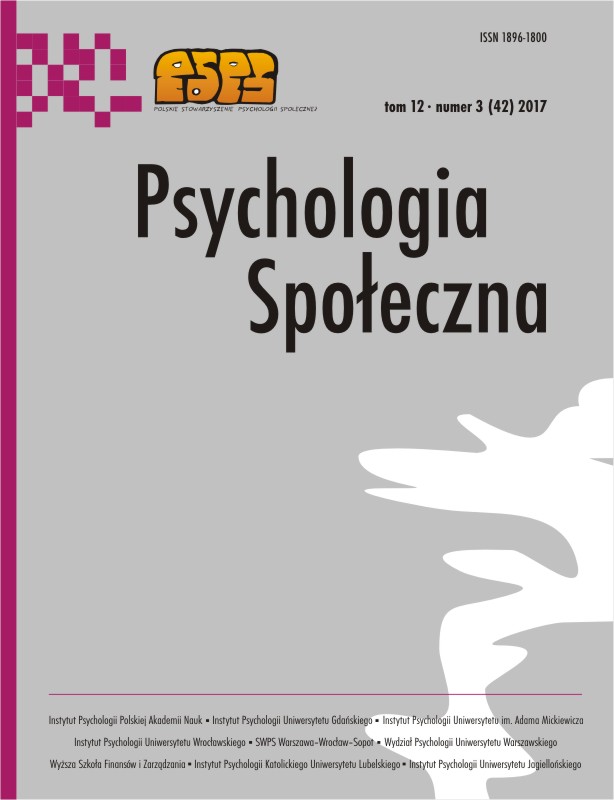Zależność odwrotna: znaczenie afektu i wiedzy eksperckiej
The inverse relation: Affect vs. expertise
Author(s): Joanna Sokołowska, Patrycja ŚlebodaSubject(s): Social Sciences, Psychology, Social psychology and group interaction
Published by: Wydawnictwo Naukowe Scholar Sp. z o.o.
Keywords: inverse relation between benefit and risk; expertise; affect heuristic; abortion; stem cell research
Summary/Abstract: The aim of the presented studies was to test whether the inverse relation may be reduced by: (1) generality of judgments and (2) expertise. 467 subjects participated in three studies. In Study 1 laypersons were asked to estimate general and specific consequences of five technologies for energy production which evoke affective responses (from negative to positive). In Studies 2–3 laypersons and experts judged activities either well (abortion) or poorly known to science (stem cell research). It was found that affect influences general judgments of benefits and risks of technologies for energy production and doesn’t influence specific ones. In poorly known situations, caused by lack of objective or subjective knowledge, and in situations that evoke strong affect, caused by high personal involvement or social controversies, judgments are based on affect. However, in well-known science situations which don’t evoke strong emotions, the inverse relation is markedly reduced in judgments of specific consequences and in judgments made by experts.
Journal: Psychologia Społeczna
- Issue Year: XII/2017
- Issue No: 42
- Page Range: 293-303
- Page Count: 11
- Language: Polish

